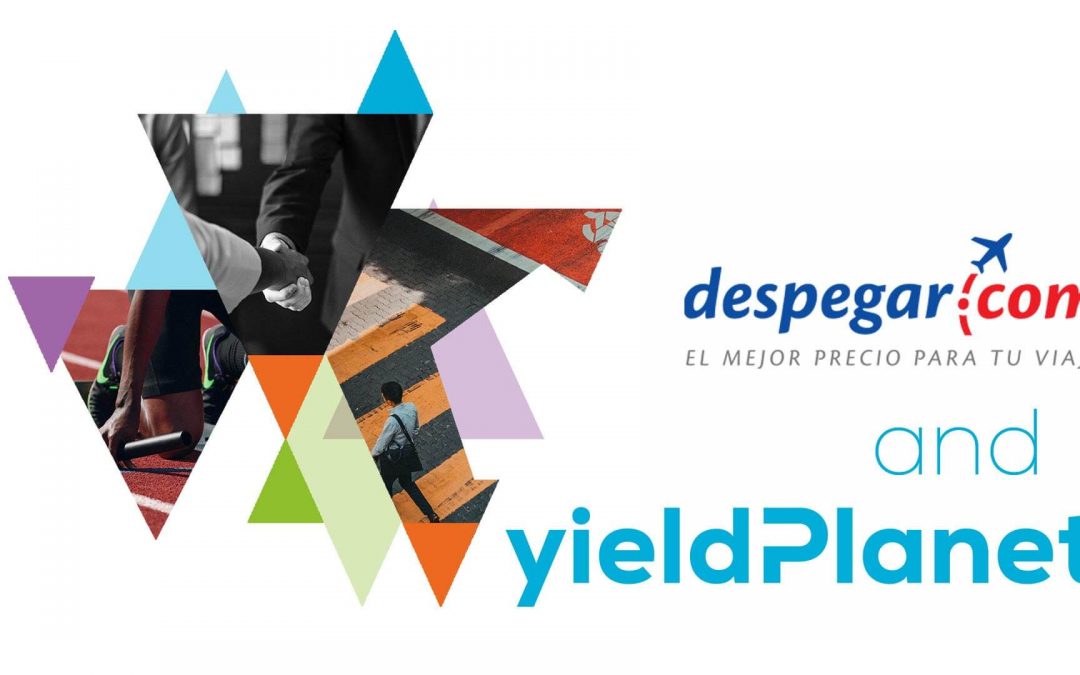Finding an effective hotel distribution strategy that would involve online travel agencies (OTAs) is an extremely challenging task. This is because it requires a robust analysis, numerous experiments and ongoing tracking of both the level of sales and the margins earned through particular channels. While OTAs have emerged to be an indispensable element of modern sales strategies, their effective management continues to pose many difficulties. How to deal with them and increase the probability of finding a winning distribution strategy?
Report
The “Channel Distribution Trend” report by YieldPlanet, based on interviews with more than 200 hotels around the world, clearly points to changing customer habits and the ever-growing importance of online bookings. Until recently, the online selling model for hotel services was discussed as a trend, but today it has evolved into a standard of the hospitality sector. The global value of online bookings increased by as much as 73% in the five years preceding the publication of the report. Such rapidly changing shopping patterns force hotel owners and managers to develop a sophisticated sales strategy that would incorporate not only traditional sales channels, but also a broad choice of online channels. A website, which is a standard in almost every hotel surveyed by the authors of the report, is, of course, a must. On the other hand, the statistics on online booking engines built into hotel websites are slightly less impressive, with 82.6% of the hotels surveyed claiming to have them.
What are the trends in the use of OTAs?
The hoteliers surveyed admit that they are partnering with online travel agencies – and with how many depends on the scale at which they are operating. Small hotels are by far the worst performers: only 86% of them claim to be using booking platforms, and the number of OTAs used is typically not higher than 6. Large independent hotels are much more active in this regard, with as many as 98% using booking portals as part of their sales strategy. While 60% of the respondents use up to 6 OTAs, just over 20% admit to using more than 10 independent sales channels. It would seem that large chain hotels are leading the field in this respect and have an extremely complex architecture of sales channels, but the results of the survey show a rather different picture. OTAs are used only by 92% of hotel chains and typically their number stands at a mere 4. However, this is typical for small hotel chains – as the scale of operations increases, so does the number of sales channels used. It is worth noting, however, that the use of OTAs is a much more conscious decision in the case of larger hotels, both chain and independent ones. They are investing many hours into sales research of varying degree of complexity, which serves as a springboard for corrective and optimization actions. According to the respondents, as few as 17% of small hotels undertake such efforts. Large independent and chain hotels look much better in this respect – 50% and 60% respectively – which is certainly partly due to the availability of higher personnel resources.
More not always means better
An effective sales strategy requires robust planning. Contrary to appearances, using multiple OTAs and systematically adding new sales channels does not guarantee success. It is recommended to keep the number of key channels to a few, or a dozen or so at most, and manage them actively. Without thorough and systematic sales analyses, efficient management of price plans, as well as ongoing adjustment of rates to the market situation and pricing strategies of key competitors, it is practically impossible to achieve success. By far the most difficult task, and therefore responsibility, rests on Revenue Managers, that is professionals responsible for maximizing the hotel’s revenues and hence maintaining its profitability. This is because their job is not limited to stimulating demand and attracting new guests by improving the multi-channel strategy, but also includes ongoing monitoring of booking costs, which can be really high in the case of OTAs. So how to effectively manage them and realize satisfactory revenues even in the case of sales channels with above-average costs? Understanding and following client’s shopping habits is undoubtedly a key to success. However, this is not an easy task as both the channels and the devices through which potential clients make their bookings are constantly evolving. Therefore, a great challenge is not only the effective identification of key sales channels, but also the continuous optimization of the sales strategies pursued through those channels. The following five tips will be helpful in achieving success and maximizing your hotel’s exposure in selected OTAs:
#1 Remember to diversify
Just like a stock market investor, a hotel manager should be familiar with the concept of diversification and apply it every day. In the past, many hotels based their sales strategy on exclusive partnership with a single OTA, which allowed them to negotiate favourable terms with regard to commissions or their hotel’s positioning on the booking website. However, that strategy soon enough ceased to deliver satisfactory results, as it found too many followers. It is worth to mention here the high risk of relying on a single external partner as far as the hotel’s sales, and thus the profitability of the entire business venture, are concerned. Should the partner encounter any problems, this may have a very negative impact on the hotel’s income and even financial liquidity. As many hotels source bookings mainly from OTA platforms, they have to be aware of the high risk of relying on a single platform only.
#2 Ensure your hotel’s visibility in key sales channels
On the other hand, building a distribution network based on a dozen or more OTAs will not be a very good idea either. Excessive fragmentation makes it very difficult to monitor and manage individual channels. It will certainly make more sense to focus on a few key channels, those that generate the most bookings and are most effective in attracting new customers, and to incorporate them in tailor-made selling strategies.
An optimal strategy in combination with a broad hotel exposure offers a chance to achieve spectacular success.
#3 Win new markets and don’t be afraid to experiment
Any distribution strategy should make room for experiments and ongoing testing of new solutions, channels and segments. For example, experimenting with new OTAs may be an effective way to implement such a scenario and reach the niche markets and segments that have so far been beyond the hotel’s reach. However, it must be kept in mind that the conquest of new markets or segments requires thorough preparation. Among other things, it will be necessary to define those markets or segments, analyze all available information on a new group of clients, their needs and habits, and then use all this information to develop a competitive offer and attractive packages. The absence of a competitive offer may render worthless the efforts invested in reaching a new client group.
#4 Think of personalization and dynamic packaging
Dynamic packaging is one of the many advantages of OTA services. This involves the opportunity to sell not only rooms, but also comprehensive services combining a hotel stay with, for example, flight booking, car rental or purchasing tickets for local attractions and events. Importantly, from the point of view of hotel operators, bundled pricing enables selective pricing. If you know well your clients and their needs, it is also worth to consider creating a tailor-made offer. Many OTAs offer a wide range of customization options to help you reach a specific client group, for example, golf enthusiasts. A similar effect can be achieved by using niche OTAs that target specific categories of travellers. The presence of such channels in the distribution strategy, despite their niche character, may bring surprisingly good results.
#5 Make friends with Big Data
Relationship between Big Data and the modern hotel business is growing stronger each year. The multitude of distribution channels, the diversity of information on guests and their preferences, as well as the need to keep track of what competition is doing, force hoteliers to use increasingly advanced tools that help them effectively analyze, and extract business value from, data. The analysis of data on consumer behaviors is a tool with which to predict not only booking preferences, but also the dates or rates that the market is prepared to accept. New technologies also enable tracking the purchasing path and thus gaining a broader picture of clients’ decision-making processes and preferred sales channels, which in turn makes it easier to set realistic goals and strategies with regard to hotel revenues.
Data source: “Channel Distribution Trend” report by YieldPlanet, 2017










 We are pleased to announce, that YieldPlanet has established connection with Oracle Opera! Thanks to this seamless connectivity the data can smoothly flow between channel manager and Opera PMS. From now on, all hotels using Opera PMS and our channel manager will not have to manually transfer the reservation data between the systems. The Oracle certification with YieldPlanet ensures data safety and working comfort!
We are pleased to announce, that YieldPlanet has established connection with Oracle Opera! Thanks to this seamless connectivity the data can smoothly flow between channel manager and Opera PMS. From now on, all hotels using Opera PMS and our channel manager will not have to manually transfer the reservation data between the systems. The Oracle certification with YieldPlanet ensures data safety and working comfort!